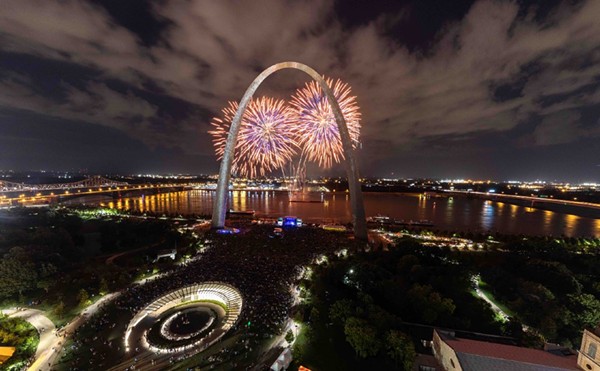Dirty Blonde is a study in performing femininity. West begins as a performer too raunchy for the vaudeville circuit, learns how to play a vamp from drag queens and finds her niche as the naughty, corseted platinum blonde. Frozen in this image forever, Mae is now a Halloween costume, a cutout caricature that lingers in one-liners and clips from Oscar nights. We can place her on a continuum of costume-savvy performers, with Cleopatra and Queen Elizabeth I on one end and Madonna and RuPaul on the other.
Byers slips silkily in and out of West's character, moving between the various stages of West's life and the contemporary story of Jo and Charlie, both obsessive Mae West fans. Jo is meant to be a modern shadow of Mae, foul-mouthed and independent, but both she and Charlie pale in comparison to Mae and her men. In the original production, Jo and Mae were performed by playwright Claudia Shear. Perhaps her own personality was meant to fill in the blanks of Jo's character, but as written, the Jo-and-Charlie scenes sometimes seem flat.
"Obsession grants the patience to really fine-tune the details," Jo tells us early on. It's details that break and make this production. Charlie, at age seventeen, meets an aged Mae West (possibly in 1980, the year she died). The Charlie-and-Jo storyline is set in 2002. This would make Charlie at least 39, but the Charlie we see looks hardly out of his twenties, a confusing detail. Using noncostumed stage crew as minor characters also detracts from the show -- a black-clad stagehand appearing in the midst of a fully costumed scene is jarring. The scene changes are quick and functional but take us completely out of the style of the show. Having them do the changes as a vaudeville act or at least accompanied by music would have kept the show's momentum going.
The first act begins and ends with a raplike sequence in which the actors tell us about being a "tough girl" -- another overwritten aspect of the play. Shear's use of self-conscious theatricality clashes with the spirit of Mae's life. West was all about appearances and maintaining control; Brechtian techniques such as visible stage crews and newspaper-headline-strewn sets are meant to expose the machinery behind the magic, to open dialogue and share the power. The juxtaposition just isn't necessary: Mae's life and frozen persona are a lesson in themselves; the awkward relationship of Jo and Charlie makes its own points without informational monologues from the characters.
Fortunately, the actors provide details that redeem the writing. Beyer as Ed Hearn and Hickey as drag queen Duchess teach Mae how to move "like a lady" in a marvelously faceted scene. In another touchingly real moment, with Mae onstage singing as "Diamond Lil," we see Beyer, as Hearn, watching from the wings and mouthing the words with her. This tiny detail reveals the relationship between Hearn and West without excess -- a moment that playwright Shear should well note.
The final tableau is both unexpected and hilarious. It's possible that Shear started with that moment and worked her way backward through the story, creating characters and situations that could culminate in the surprise ending. Our journey through her time-jumping, overly theatrical song-and-dance script may be bumpy at times, but we're in a great mood by the end. This was my first time in the Theatre at St. John's, where the comfortable seating and nightclub atmosphere added to the pleasure of the experience. If this Mae play sounds intriguing, make your reservations today, for, as West reminds us, "He who hesitates is a damned fool."





